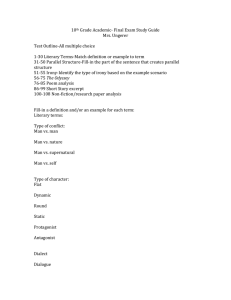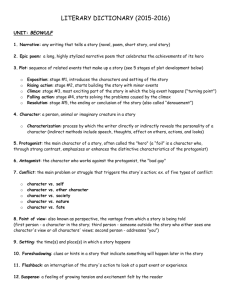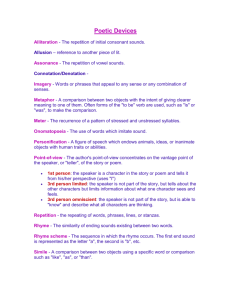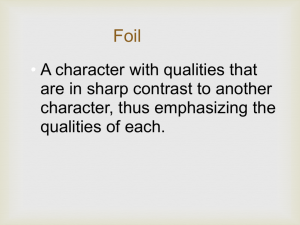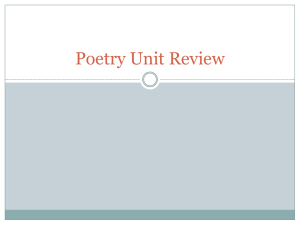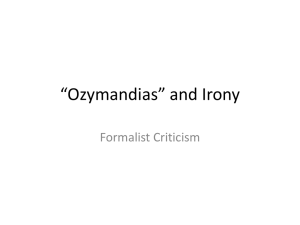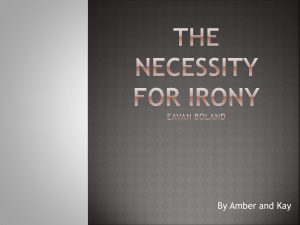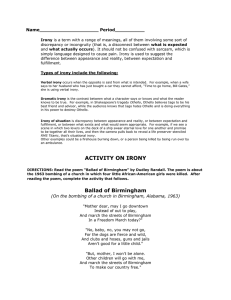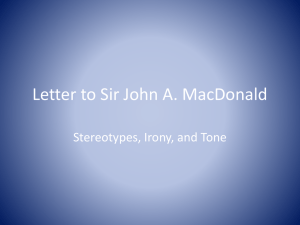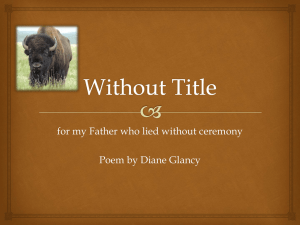August 2026: There Will Come Soft Rains
advertisement
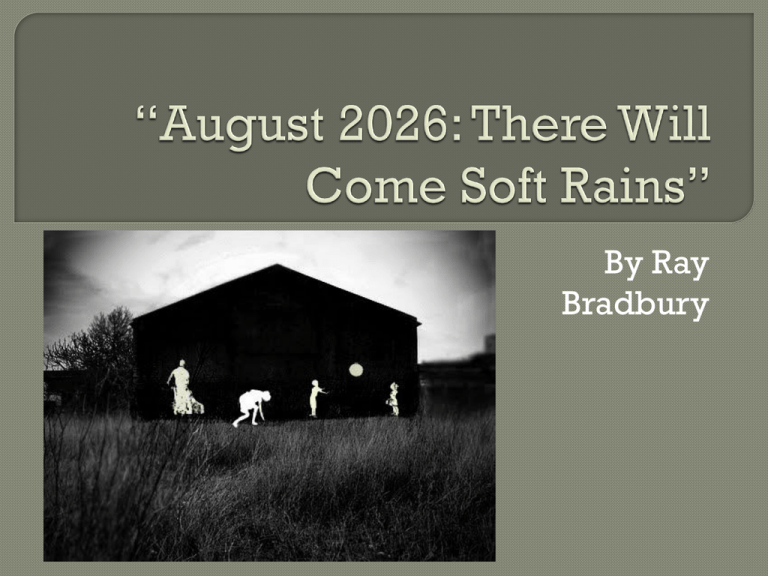
By Ray Bradbury The short story was originally published in 1950 in The Martian Chronicles During this time in the United States, people were especially fearful of nuclear weapons. “The development of the atomic bomb will end all war or all men” •Science fiction became a popular genre for film and text. •Fear of both nuclear war, and explosions of technology contributed widely to the plot themes of many types of media. The poem that occurs in the story is a real poem, written by Sara Teasdale in the 1920s. She manages to convey a sense of detachment: • The earth does not know, or care, that mankind has come and gone. • Disturbing picture of indifference. • Post-apocalypse setting inspired by WWI. Let’s read the story together as ACTIVE readers. Here’s what we’re looking for: • Figurative Language Simile Metaphor Personification Imagery Here’s what • Setting • Irony we’ll talk about next: The setting is the time and location at which a story takes place. EXAMPLE: What is the setting of Harry Potter… PRESENT DAY HOGWARTS August 4, 2026 Post-Apocalyptic (after nuclear war) California •Deserted neighborhood •Everyone and everything is dead •A family home •Technology is the only thing still “alive” here Find indications of the setting of the story. One of the trickiest terms we will learn all year. IRONY is the use of words to express something different from, and often opposite to, their literal meaning. • IRONY is NOT a synonym for COINCIDENCE!! We are going to have to look at the text as a whole to find examples of IRONY. • While there are many ironic aspects of the story, they are harder to pinpoint because you have to look at the BIG PICTURE in order to find them. Let’s go through the text together to find examples of IRONY: See if you and your partner can find irony in the story with regards to NATURE and TECHNOLOGY. Also, see if you can find the IRONY in the POEM. The mechanical house is a representation of what is wrong with humanity in the future. Man’s constant need to improve his technology blinds his view in being able to see that his own technology was replacing him. The house cooks, cleans and even keeps time for the family. But as man dies, his machines aren't even aware of his absence, and at man’s destruction we see how thoughtless all the technology, which occupies the house, is. We are destroyed by our most awful invention, the atomic bomb. Teasdale’s poem describes a world in which nature wakes up after man’s destruction not even noticing of our disappearance. It shows how we are just temporary rulers of this planet. Because of our obsession with war, nature will once again have the planet like it did so long ago. Man’s constant struggle for more creative ways of destroying himself has gone so far that it has actually destroyed that which has existed before us: nature. No robins sing, spring never comes over the ruined city and the only rain that falls is mechanical. Machine has taken the place of nature. • The closest thing to soft rains that fall are the mechanical rains of the sprinkler system that goes off when the house catches fire. • The poem, which seems pessimistic, is actually very optimistic compared to the reality. • An example of the folly of thoughtless technological development.
